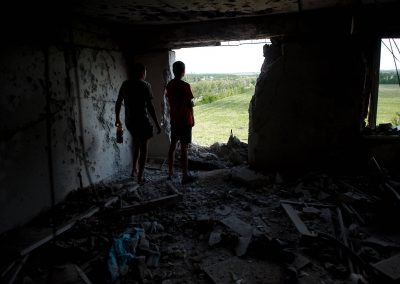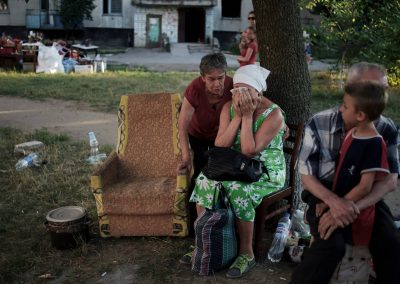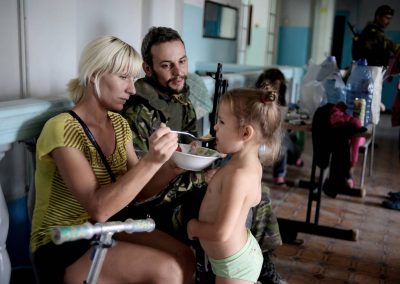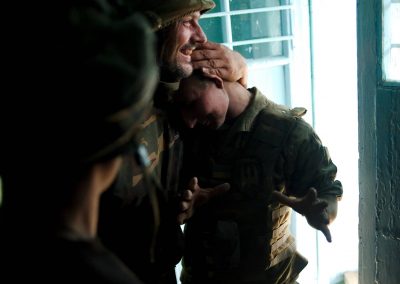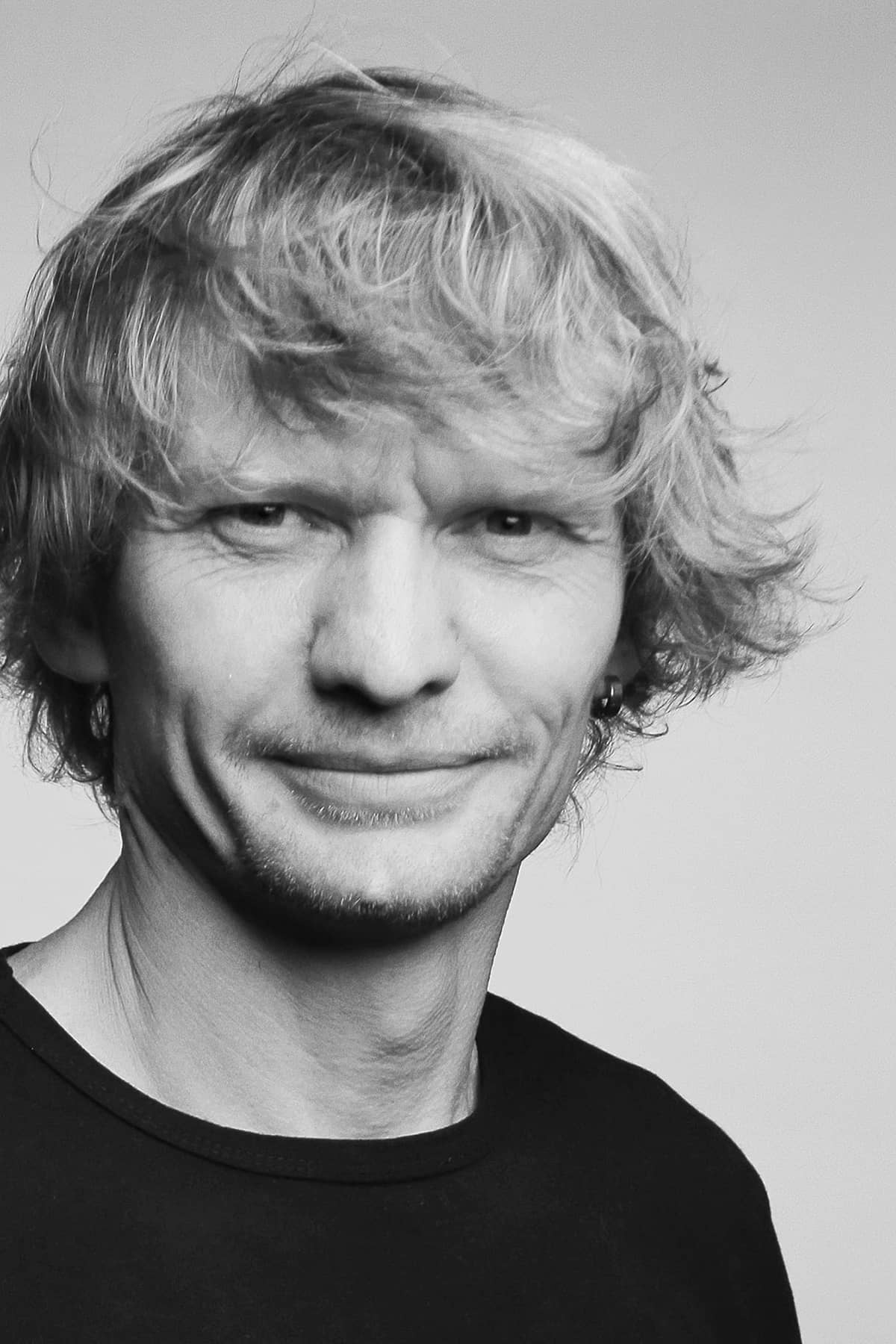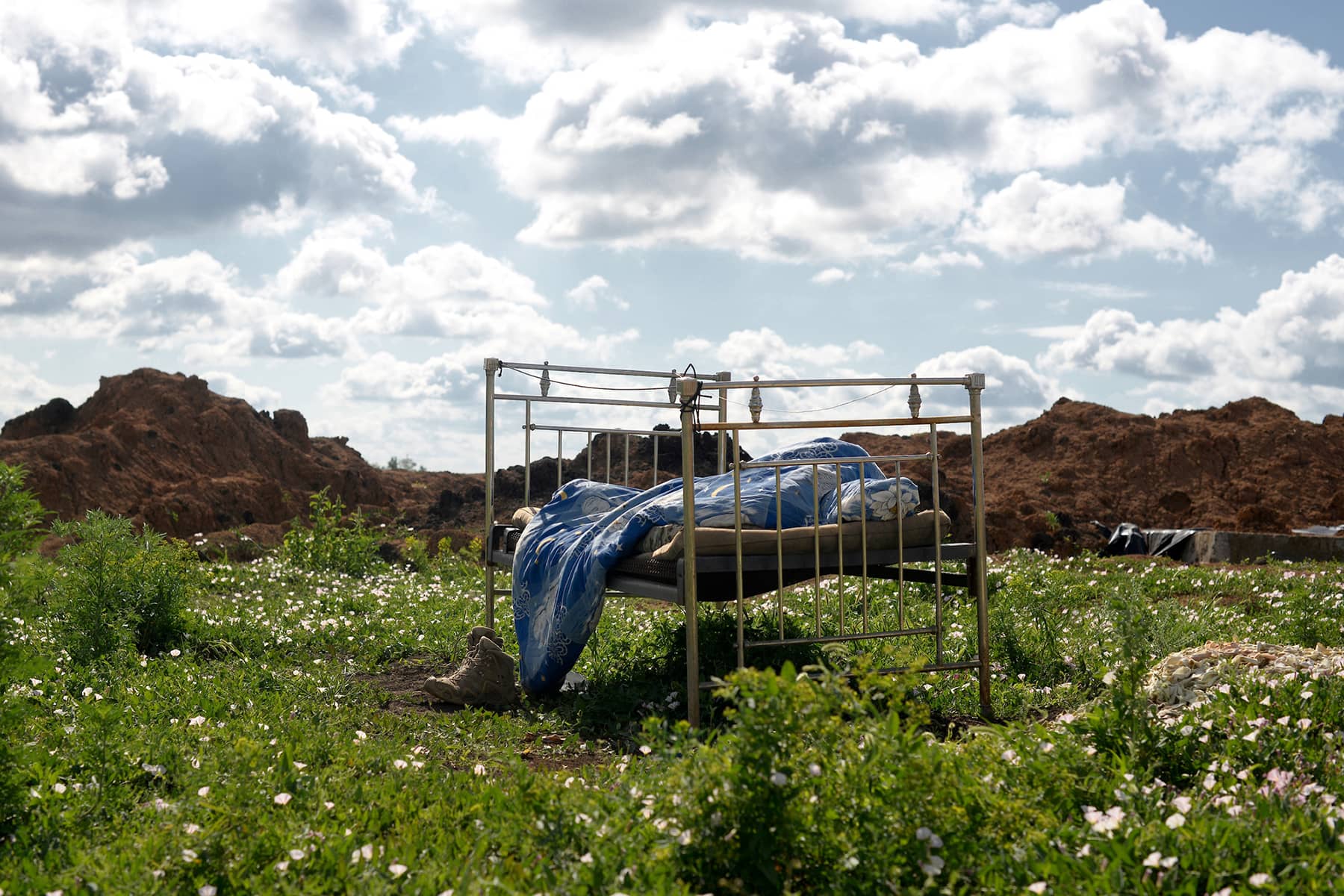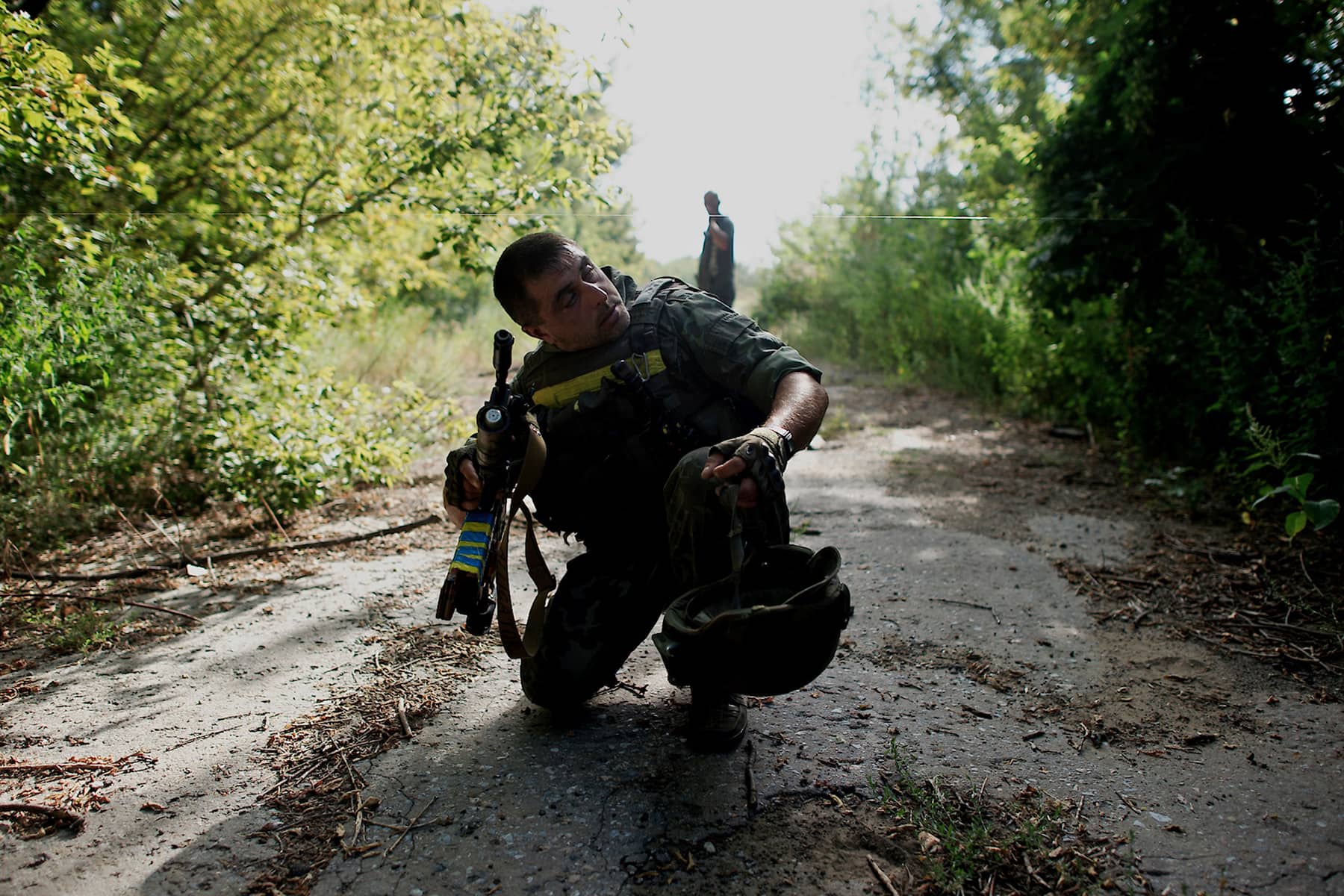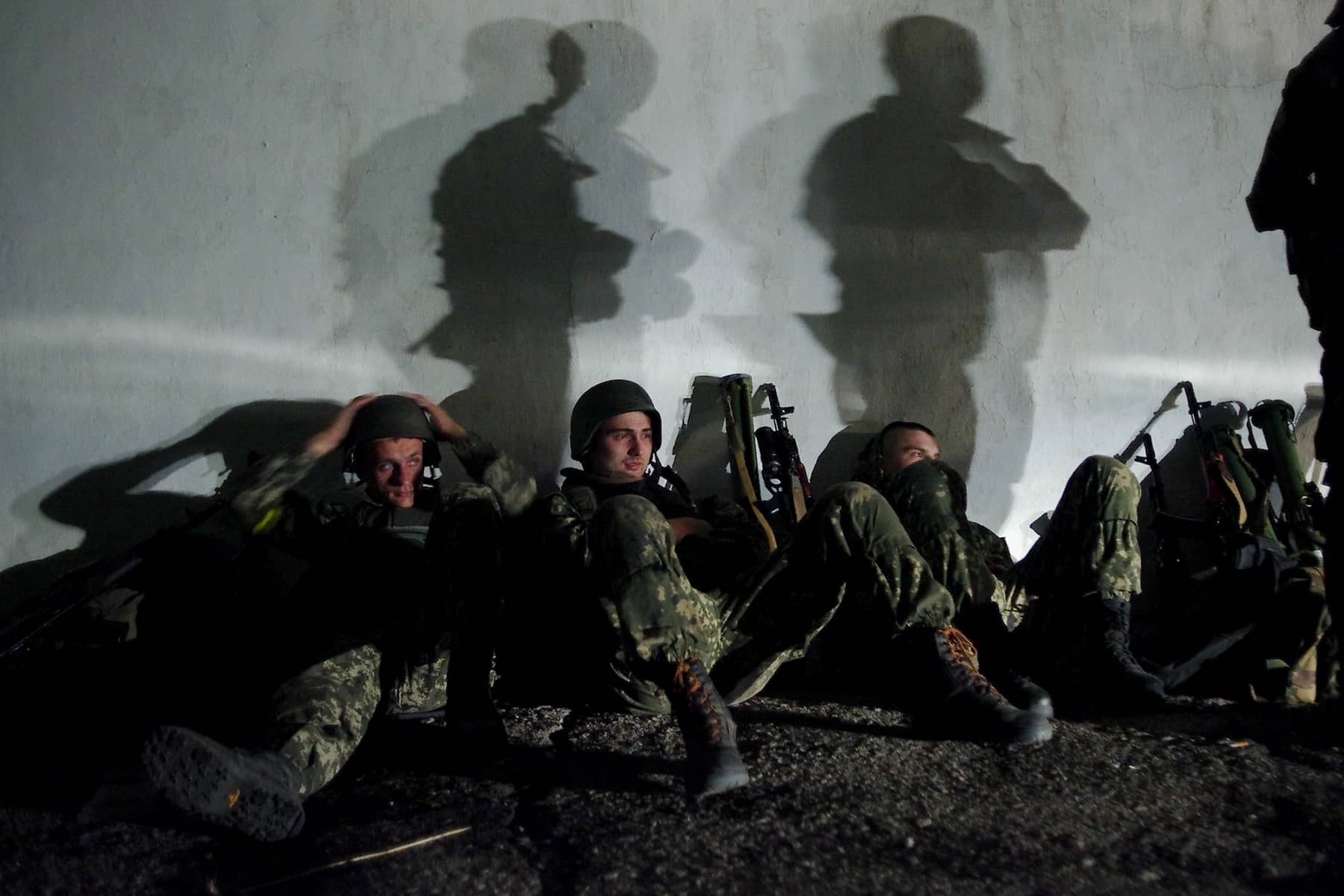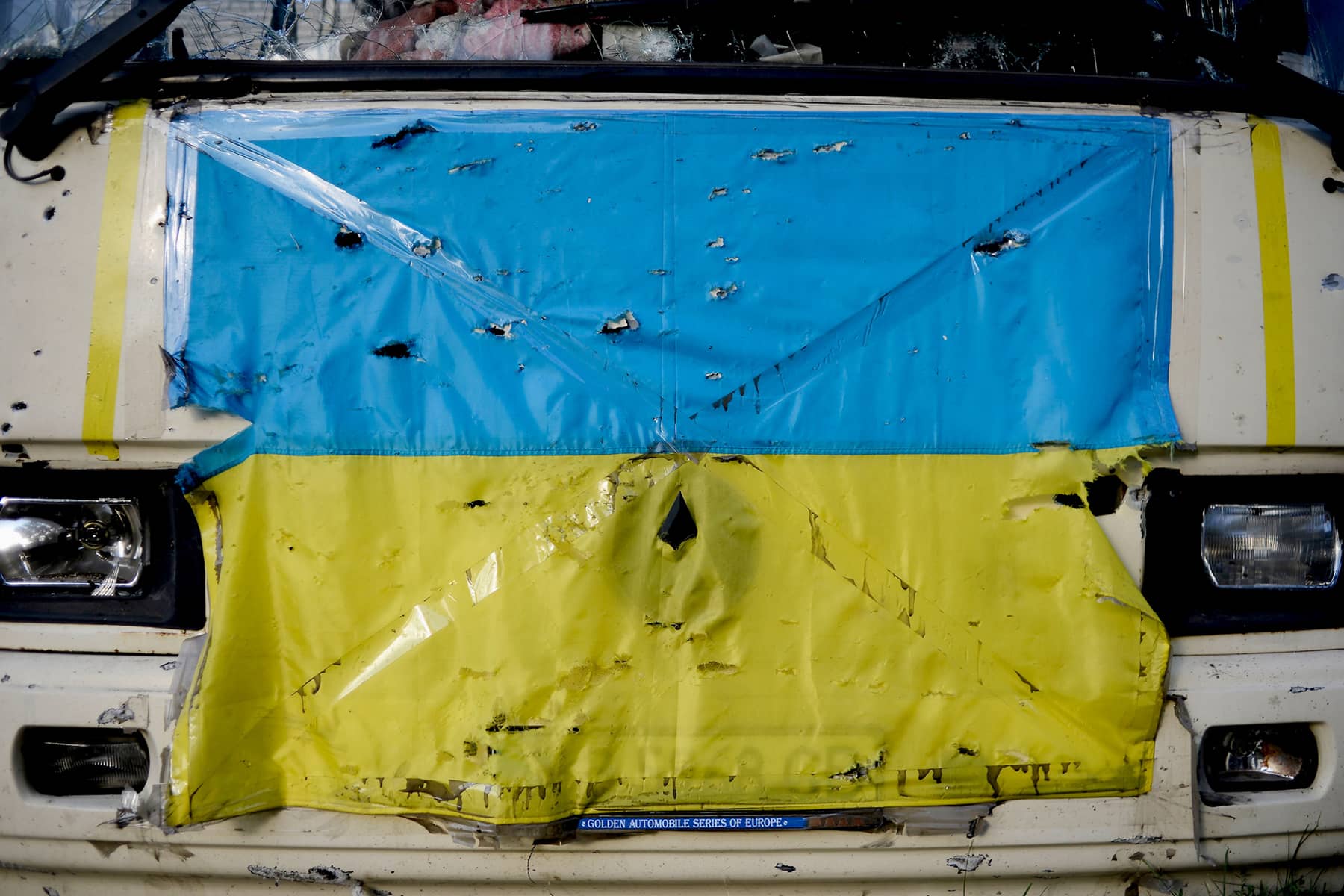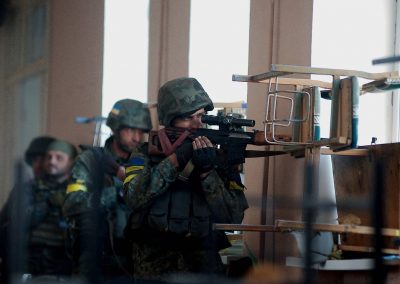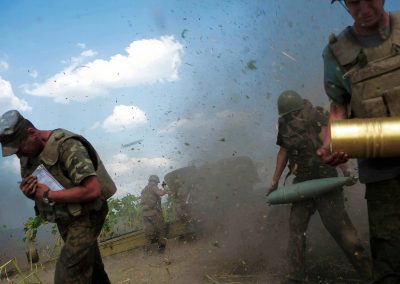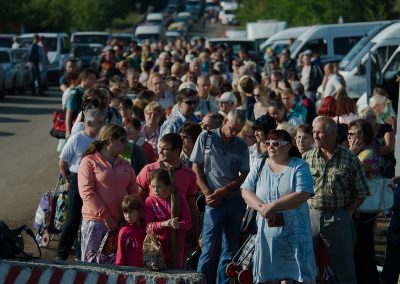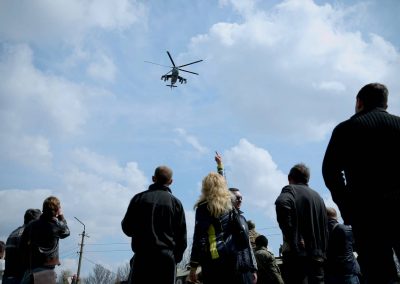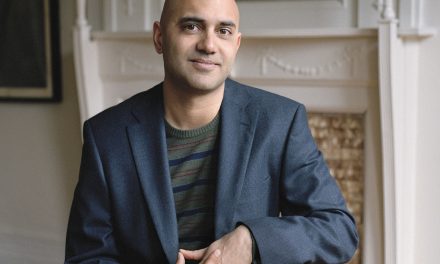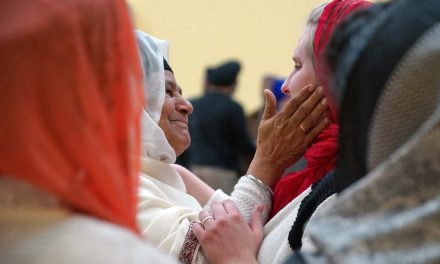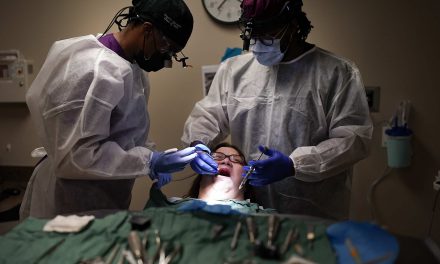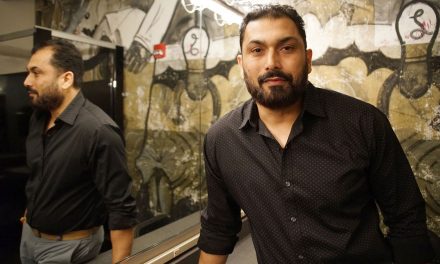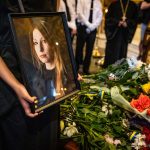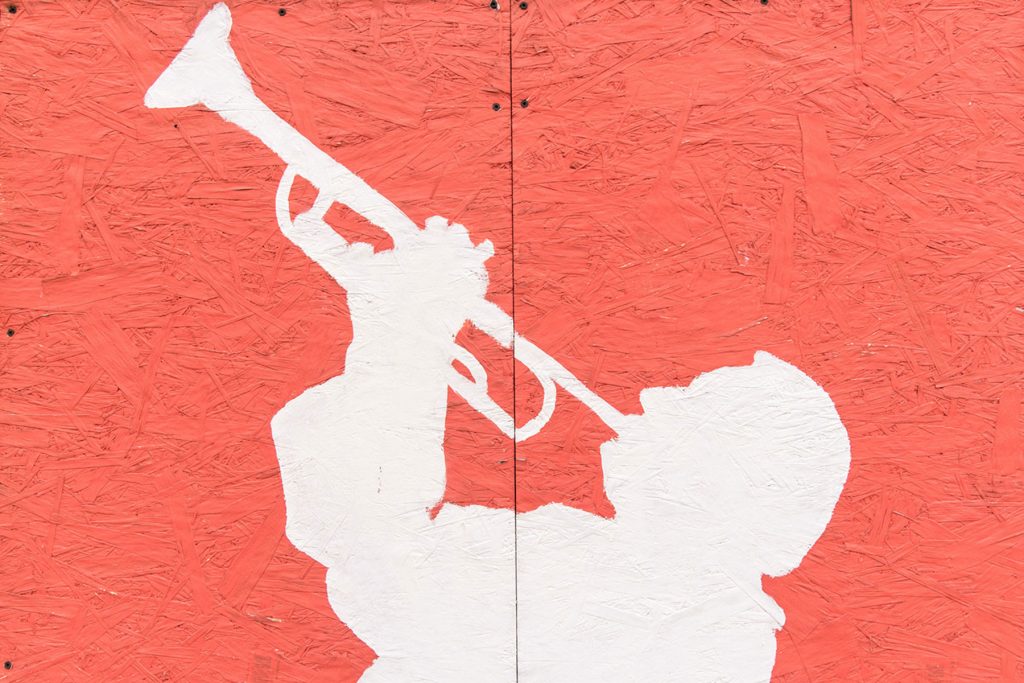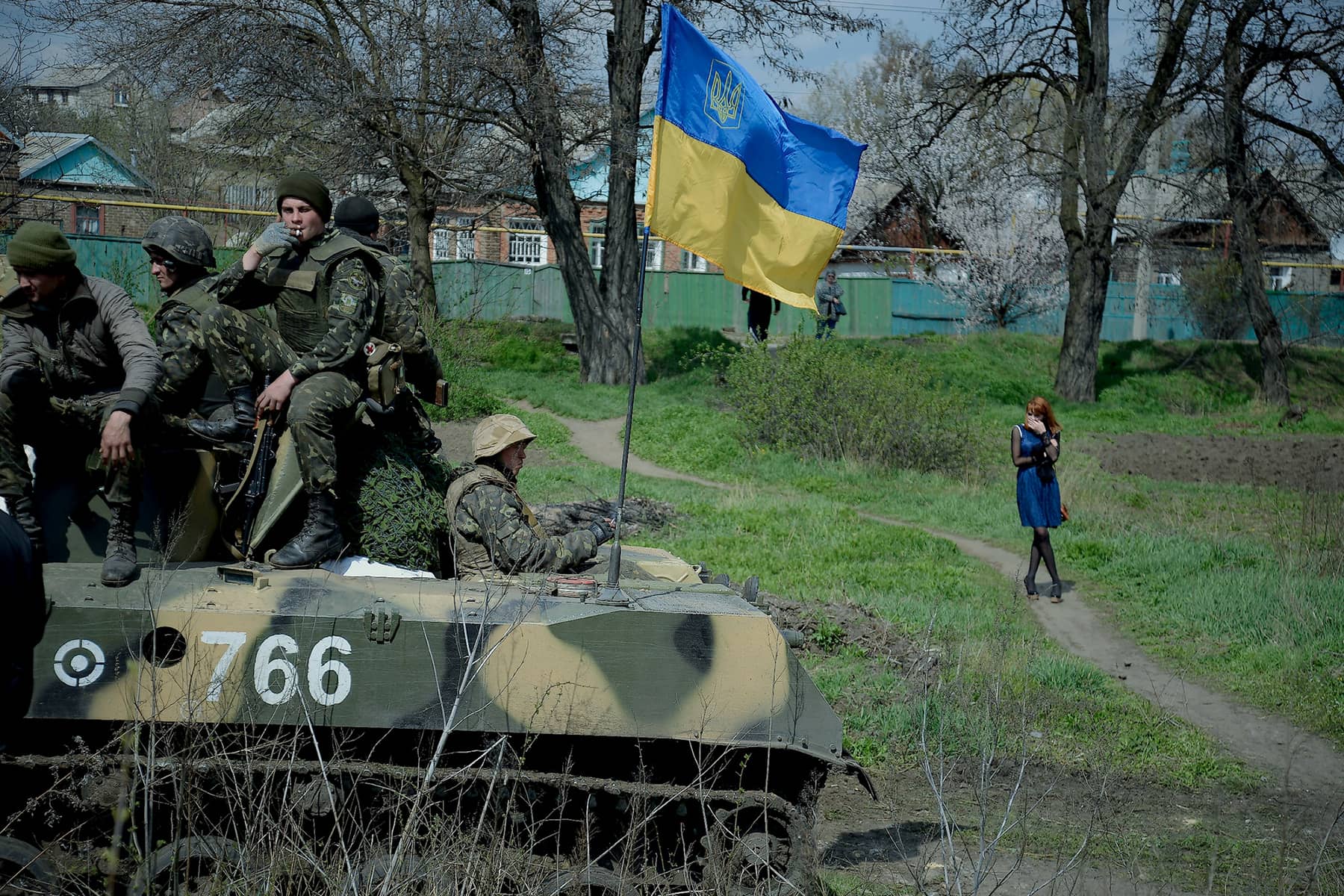
First reported by Ukrіnfоrm news service and later confirmed by the Kyіv Іndependent, Lyseiko reported that the last time Levin got in touch was on March 13. At that time, he was with taking photographs within the combat area in Vyshhorod District.
“Each Ukrainian photographer is dreaming of taking a photo that would stop the war.” – Maks Levin
Maks Levin was born in Kyiv Region in 1981. He has worked as a photojournalist and documentary photographer for many Ukrainian and international publications. Levin’s most documentary projects were connected with the war in Donbas and Ukraine.
Lyseiko said that Levin took his personal car and went to photograph hostilities on March 13. He left his car near the village of Huta Mezhyhirska and went to the village of Moshchun. A text message was sent from his phone at 11:23 a.m., and after that he was not heard from again. Later, it was reported that hostilities started within the area where Levin was planning to work. It is presumed that he could have been wounded or taken prisoner by Russian troops.
LеnsCulturе Magazine published an essay by Maks Levin on March 5, along with an interview by Аnnа Аkаgе that featured some of his images. As war-battered but committed photographer, Searching for Honesty in Ukraine’s Murky War explored Levin’s soul-searching thoughts on the meaning of photojournalism under the grim field of battle.
The war reporter: a cynical, macabre creature, coldly watching the world through his camera; the rantings and ravings of human violence frozen in a frame. For what? In order to calm the news-consumers’ appetite for blood and drama?
In the informational combat waged between the reporter, the soldier and the reader, war is no less ugly than on the battlefield itself. In this rotten reality, the Ukrainian photographer Maks Levin emerges as an unusual figure: declining to stay neutral or objective yet also not a “hero” by our current standards. His work does not take the bait of being pointedly bloody or graphic; he will never smash the “box office” or get the most clicks.
This commitment to a nuanced moral high ground has its costs. In Levin’s eyes, “I can say that we are losing the information war to Russia, because we give more silence and are less united about our informational strategy. Meanwhile, Russian reporters work for propaganda commissioned by their government. In other words, these are not times to wait for truth to simply weigh down the scales. Things won’t work out just because that is how ‘it’s supposed to be.’ Remember, the informational war is no less dirty than the one going in the fields. We have to be less salient, less afraid about telling truth.”
Maks Levin currently works for Reuters and LB.ua and shoots in the zone of ATO (Anti-Terrorist Operation), where Russian troops and dissident breakaway bands are located. While working, he survived the infamous Ilovaisk Mousetrap (a military operation held in 2014 in which Ukraine suffered a harsh defeat), where almost 400 Ukrainian soldiers (although perhaps more than 1,000, according to other sources) were killed and over 150 are still missing. During the action, Levin was injured but escaped with other three reporters, driving through heavy fire and occupied territories to reach border of the ATO.
Away from the battlefield, Levin is the father of 3 sons. Yet he continues to return to the ATO zone, despite the dangers, “because of his friends,” he said. There are other things make him an unusual war photojournalist as well: he hates violence but values clarity in our views on war. He doesn’t believe that people can ever stop killing each other. And having witnessed war firsthand, he believes that violence never brings about solutions.
“But the hardest thing of all is to stay honest,” Levin said. Honesty is not about being right, or bold, or heroic or popular. Staying honest is only itself, and sooner or later, it requires sacrifice. After all, honesty is rarely popular and is often mislabelled as weak. But maybe that’s why Levin hasn’t become the iconic war reporter that he was supposed to be.
“Making something fake is pretty easy. So, it’s not a matter of work or method — ultimately, it’s a matter of conscience. Any person that would lie during peacetime will be very tempted to fake news in a war-zone. Even something simple, like making a picture more attractive for a photo agency or TV channel to get it published. Whether in war or peace, it is always about person, not about the circumstances.”
Q&A with Maks Levin
You don’t like to give interviews and communicate with journalists, though your work is pretty close to theirs. Why?
Maks Levin: Do you know what war reporters do — the very first thing — when they come to the zone of ATO [Ukrainian front-lines]? Shoot selfies.
How did you became a photographer?
Maks Levin: I have a friend whose father was a sports photographer and their house was full of souvenirs from different countries and faraway places: Toronto, Tokyo, etc. In addition, my friend could visit championship league matches, sitting in the Press zone with the top photographers. I was jealous, of course, and this kind of job seemed to be a dream for me. Back then, I was hardly thinking about social reportages or war photography. I thought, “Travel the world, meet new people and take photos of interesting things.” That was the whole idea; not to save the world or tell the truth.
But you end up shooting war and cases of social injustice. What was that moment when things took a different turn?
Maks Levin: I never wanted to be a war photographer. I didn’t have the desire to feel like a hero doing something of great importance. For example, when the war in Georgia started, lots of famous war photographers from Ukraine and Russia rushed over there to make stories. But I thought, “That has nothing to do with me, why should I go there and risk my life?” After all, these photographers have shot war for years, all over the world, but nothing really changes…war goes on. But when war came to Ukraine, it was not a matter of choice anymore—I became a war photographer. It turns out I’m a sentimental person. Because of this, I always get drawn into difficult situations. It all started with Maidan. Then I went with volunteers and first military troops to the Luhansk region. Actually, that was my first visit to that part of the country. When I first got to the ATO, it was the middle of the summer, the beginning of war. The nature was amazingly beautiful and people were very open, and the whole world seemed to change. I felt as if I had arrived where I supposed to be; I was doing what I had to do. Together with me, there were also lots of my friends. Many guys who were my age, with great stories and life experiences, charismatic and funny, brave and full of a passion for life. Unfortunately, some of them will never live to see another summer. Those people are real. Everything is real there. That’s what I discovered about war.
And everything here, in everyday life, is fake, isn’t it?
Maks Levin: Well, not everything, but yes, my life has changed and my attitude to some things and certain people as well. Since my experiences in the war-zone, I began to communicate more with journalists and my colleague photographers. I began shooting or reporting from the ATO and working in politics much less. The more I learnt about war and peace, the less I wanted to communicate with people or become involved in the informational, propagandistic war.
So, why are you doing this?
Maks Levin: I often ask myself that. What makes me come back to the ATO? If you think your photos will change the world — don’t be naïve. Stop shooting. But I continue to make them because I should. It’s a kind of duty and responsibility for those brave people out there who are fighting. Also, to show other people that there’s war happening and it’s real. I want to show that these are the people who protect all of us. But to be fully honest with answering your question — I don’t know what it is for.
What is the difference when you shoot for agency and when you shoot a story on your own?
Maks Levin: When you’re a reporter and you work for an agency—you have to shoot blood, women and sex. It’s the news. If something big happens in the ATO, they send reporters urgently and post pictures. But if it’s “quiet” and nothing extra is happening…well, then they are not interested in the story of a lonely mother living in a battlezone with her children; children going to school under fire. I shoot those latter stories. And when I shoot them, I have biases, I have empathy for my heroes. I am very connected with all those people, especially with the kids. Emotions are hard to hide because this is very personal. War is a very personal thing after all.
Every photographer in the war zone, or in any extreme situation has to choose: if he stays a photographer, no matter what, or if he lets himself become involved. How do you choose?
Maks Levin: When I began working, I thought that no matter what happens, you have to stay behind the camera. My photo stories are about people and I often give them to volunteer organizations that use these photos to drive attention and gather money. So I had to stay neutral and use my pictures as my contribution. But not so long ago, we had a training at Reuters concerning the psychological traumas that reporters usually get from war. We asked the therapist who was present, “What is the right way to take this all?” Of course, the therapist told us that as professionals, we couldn’t take it personally. If we did, we just wouldn’t be able to survive for that long. But in the battle at Ilovaisk, when I became trapped with a group of soldiers, I had no choice. I put down my camera and helped carry the wounded and the dead. Of course, I never held a weapon — but there were moments when I couldn’t take a picture because of my sensitivity and involvement. Even if I abstractly understood that these photos might be the only evidence left for history, there was something too personal about it to “make work.”
How has your work changed your life?
Maks Levin: War photography is a very simple and honest thing if you do your job right. Yes, it is dangerous and you have to learn how to behave right. But it also changes you somehow: it makes you reconsider the value of peaceful life. Your family becomes more important; big, fancy talk feels more false; and most importantly, you start to divide people into good and bad; into those whom you trust and those you do not. War influenced my understanding of the photographic profession as well. I cannot understand why 50 reporters are shooting the same political stand-up show, the same mindless press conferences, when there are so many social themes of vital importance that are waiting to be shown. It seems to me that photographers and journalists tend to blind themselves fighting for the next scoop. Meanwhile, they are avoiding complicated but important themes that deserve long-term attention.
Have you thought about what you will shoot when this war is over?
Maks Levin: You don’t actually have to go to a “real” war to find it. War can be shot everywhere — in hospitals, ghettos, anywhere where people are fighting social injustice. I make photo stories about single fathers, about children with autism, many other subjects. At the end of August, just before Independence Day, the news agencies and military awaited possible intra-war escalations. I was in the ATO again, driving between military bases, waiting for the storm to come. I began to understood and trace the inner side of all this endless peace and war…when awaiting (and photographing) escalations makes the informational atmosphere even more tense. This only leads to more hate and fear on both sides. I understood, then, that I have to take photos of something more positive. I need to shoot stories when people come to peace with each other, when they forgive. So, on that Independence Day, I photographed a big party in a village. The place was controlled by Ukrainian forces but the people themselves tend to support pro-Russian forces. All the soldiers knew that. But the fact was, these people made a party for the Ukrainian soldiers. It was nothing special: just some homemade food and a little of music. But they were dancing with Ukrainian soldiers and that made me feel like maybe we haven’t lost it all yet.
Maks Levin and Аnnа Аkаgе
Maks Levin and Еvgеnіy Dаtsеnkо
Portions originally published on LensCulture as Searching for Honesty in Ukraine’s Murky War

